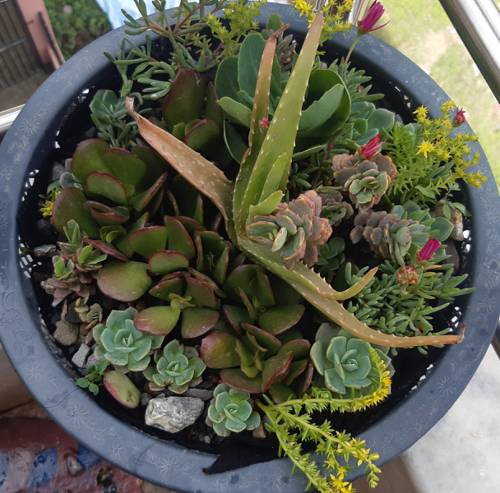
FAQ About Indoor Plant Microbiomes

What is an indoor plant microbiome?
An indoor plant microbiome refers to the community of microorganisms, including bacteria, fungi, and viruses, that live in association with plants and soil inside a home environment. These microorganisms interact with the plant, contributing to its health, growth, and resistance to diseases.

How do indoor plant microbiomes benefit plant growth?
Indoor plant microbiomes benefit plant growth by enhancing nutrient uptake, improving soil structure, and stimulating root growth. Beneficial bacteria can fix nitrogen, making it accessible to plants, while fungi such as mycorrhizae help in extracting nutrients and water from the soil.

Can indoor plant microbiomes affect humans?
Yes, indoor plant microbiomes can indirectly affect humans by improving indoor air quality and promoting healthy plant growth. Some beneficial microbes can help in breaking down pollutants, thus contributing to a cleaner and healthier indoor environment.

What types of microorganisms are commonly found in indoor plant microbiomes?
Common microorganisms in indoor plant microbiomes include bacteria, fungi, and archaea. Bacteria such as Rhizobium and Pseudomonas and fungi like Trichoderma and mycorrhizal fungi are frequently found due to their symbiotic relationships with plants.

How do beneficial bacteria enhance plant resistance to diseases?
Beneficial bacteria enhance plant resistance to diseases by outcompeting harmful pathogens for resources and by producing antimicrobial compounds. These interactions can induce systemic resistance in plants, preparing them to defend against potential infections.

Can I manipulate the microbiome of my indoor plants?
Yes, the microbiome of indoor plants can be manipulated by using soil amendments like compost, applying microbial inoculants such as beneficial bacteria or mycorrhizal fungi, and maintaining optimal growing conditions.

What is the role of fungi in indoor plant microbiomes?
Fungi, such as mycorrhizal fungi, play a crucial role in indoor plant microbiomes by forming symbiotic relationships with plant roots. They assist in nutrient uptake, particularly phosphorus, and improve plant resilience to stressors such as drought and pathogens.

Why is soil health important for indoor plant microbiomes?
Soil health is vital for indoor plant microbiomes because it provides the habitat and resources necessary for microbial communities to thrive. Healthy soil supports a diverse microbial population, which can enhance plant growth and sustainability.

How can I maintain a healthy indoor plant microbiome?
Maintaining a healthy indoor plant microbiome involves using high-quality soil, avoiding overwatering, providing adequate light, and minimizing the use of chemical fertilizers and pesticides that could harm beneficial microbes.

What are common misconceptions about indoor plant microbiomes?
A common misconception about indoor plant microbiomes is that all microbes are harmful. In reality, most microorganisms associated with plants are beneficial and essential for plant health and functioning.

How do indoor plant microbiomes develop?
Indoor plant microbiomes develop through interactions between plants and their environment. Microbes from soil, plant material, and even the surrounding air colonize plants and establish complex communities influenced by factors like soil composition and plant species.

Are commercial products available to enhance plant microbiomes indoors?
Yes, there are commercial products available, such as microbial inoculants containing beneficial bacteria and fungi, designed to enhance plant microbiomes. These products aim to support plant growth and health by boosting the microbial diversity in the soil.

What is the impact of potting soil on indoor plant microbiomes?
Potting soil impacts indoor plant microbiomes significantly as it serves as the immediate environment for both plants and microbes. The composition, texture, and nutrient content of potting soil can influence microbial diversity and activity.

Can indoor plant microbiomes help with bioremediation?
Yes, indoor plant microbiomes can aid in bioremediation by breaking down pollutants in the soil and improving air quality. Certain microbes are capable of metabolizing harmful compounds, converting them into less toxic substances.

Do different plant species host different microbiomes?
Yes, different plant species can host distinct microbiomes due to variations in root exudates, plant structure, and ecological preferences. Such diversity leads to specialized microbe-host interactions unique to each plant species.

How does a diversified microbiome contribute to resilience in plants?
A diversified microbiome contributes to resilience in plants by enhancing nutrient cycling, improving soil structure, and providing a buffer against environmental stresses. This biodiversity can help plants withstand pest attacks, drought, and poor soil conditions.

Can the use of chemical fertilizers harm indoor plant microbiomes?
Heavy use of chemical fertilizers can negatively affect indoor plant microbiomes by creating environmental conditions that favor pathogens or reduce microbial diversity. It's beneficial to use organic or balanced fertilizers that support a healthy microbiome.

What is the role of archaea in indoor plant microbiomes?
Archaea, though less studied than bacteria and fungi, play roles in nutrient cycling and organic matter decomposition in indoor plant microbiomes. They can contribute to nitrogen cycling and soil health, promoting a favorable environment for plant growth.

How do environmental conditions affect indoor plant microbiomes?
Environmental conditions such as light, temperature, and humidity can drastically affect indoor plant microbiomes. Optimal conditions promote microbial diversity, while extreme or unfavorable conditions might select for pathogens or reduce beneficial microbial populations.

Are all microorganisms in indoor plant microbiomes beneficial?
Not all microorganisms in indoor plant microbiomes are beneficial. While many play supportive roles, some can be opportunistic pathogens or compete with plants for nutrients. Maintaining a balanced microbiome is key to plant health.
